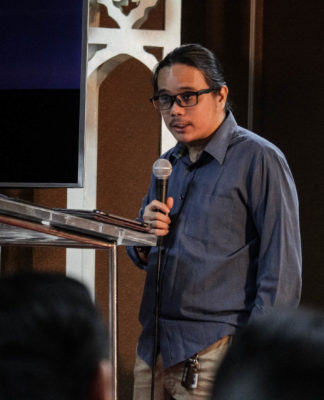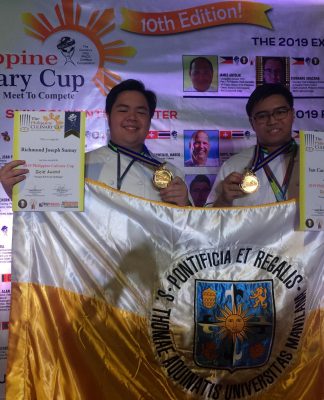AMID growing dissent over the Church’s teachings from theologians here and abroad, UST will soon require Theology instructors to get a “mandatum” from the Archdiocese of Manila before they are allowed to teach in the University.
The mandatum is essentially a license to teach theology in Catholic schools required under Ex Corde Ecclesiae, the apostolic constitution issued by Pope John Paul II for Catholic colleges and universities.
This is probably the first time the mandatum will be enforced in the Philippines. In the United States, not all universities and colleges require the license.
Reynaldo Reyes, UST Faculty Union vice president for grievance and complaints, said there was nothing wrong with the new policy, but the so-called “UST Mandatum” should be implemented properly, noting that it was only based on guidelines approved by United States’ Conference of the Catholic Bishops.
“The guidelines were not based on the directives of the Catholic Bishop’s Conference of the Philippines (CBCP) on Canon 812. In other words, the UST Mandatum has no ecclesiastical approval,” he said.
However, Institute of Religion head Fr. Winston Cabading, O.P. said that although there are no CBCP implementing guidelines for the mandatum, the Vatican’s Congregation for Catholic Education required it in 2011.
The mandatum may be received from a local bishop or any competent ecclesiastical authority, following a request and application for a mandate. For UST, the applicants must be recommended by the University to the Archbishop of Manila.
A profession of faith and oath of fidelity, which includes faithfulness to the magisterium, orthodoxy (possession of correct doctrine) and orthopraxis (practicing what you teach), will be performed by those who will teach Catholic Theology and Morals.
When a faculty member commits an offense contrary to the nature of the requirement, the mandatum will be revoked, thus making him or her ineligible to teach.
Institute of Religion Faculty Association president Claudita Yaranon said the new requirement is not really an issue as it is expected that instructors will impart knowledge consistent with the doctrines of the Catholic Church.
For Theology professor Aguedo Florence Jalin, the University’s move to enforce the mandatum is already “late.”
“It should have been implemented since we started teaching,” he said.
But Cabading said the statutes of the University was only recently changed to accommodate the mandatum. The Archbishop of Manila, however, has yet to respond to UST’s letter to approve the implementing guidelines for the mandatum.
He added that the Council of Regents and the Academic Senate have found “nothing wrong” with the guidelines.
Reyes disagreed, citing the fourth and fifth guidelines of the UST Mandatum, which states that “ordinarily only those to be tenured would be recommended for a mandatum, and substitute, probationary tenure track, part-time faculty members ordinarily are not recommended for a mandatum.”
“Those to be tenured are probationary, so they are not recommended and at the same time, they are recommended,” he pointed out.
However, those to be tenured are different from the substitutes, probationary tenure track, and part-time faculty members, Cabading said, adding that the word “ordinarily” allows the possibility that a faculty member can continue up to the level of tenureship.
Reyes said he does not agree that the mandatum is a requisite for tenureship; rather, the mandatum should be a requisite to teach in the University.
“To get tenured is one thing and to teach Catholic Theology is another,” he said.
For Cabading, UST has the right to require the mandatum in keeping with its Catholic character.
“It is the right of any school [to require], that is why even if you say it (the recommendation) is not included in the Canon Law, it doesn’t prevent the University from requiring it,” he said. B. D. Nicolas















